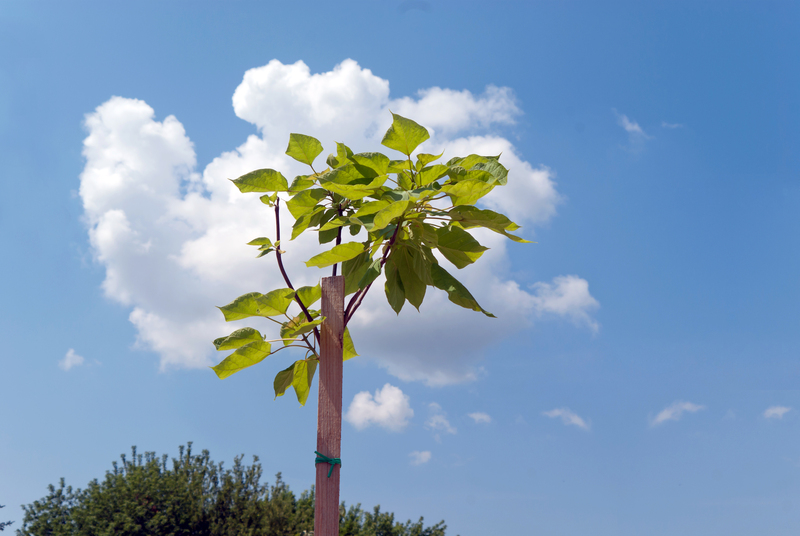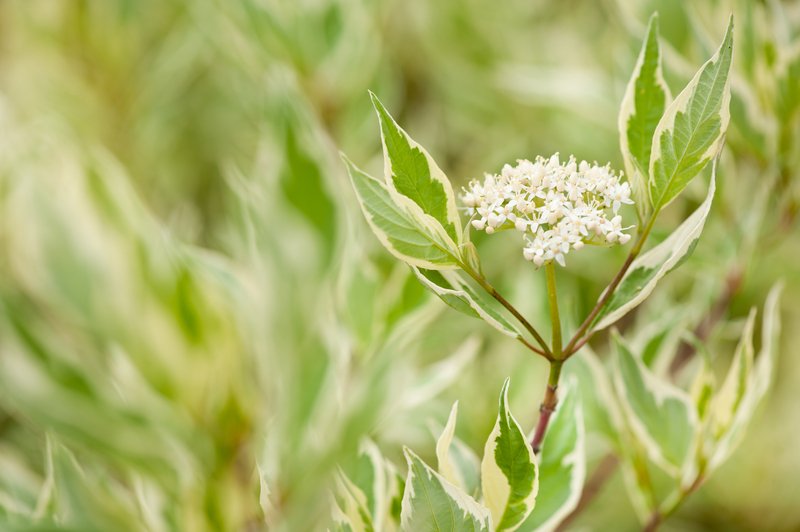The Garden as a Weapon Against Climate Change
Posted on 18/06/2025
The Garden as a Weapon Against Climate Change
The battle against climate change isn't just fought in government halls and through international agreements; it's being waged right in our own backyards. The humble garden--whether urban or rural, big or small--holds enormous potential as a powerful weapon against climate change. By transforming ordinary green spaces into eco-friendly powerhouses, individuals and communities can play a direct role in building a more sustainable future.

How Gardens Fight Climate Change
The garden as a tool against climate change works on several interconnected levels. From absorbing excess carbon in the atmosphere, supporting biodiversity, to mitigating the urban heat island effect, gardens are more than just decorative landscapes. Here's how cultivating a climate change-fighting garden can make a profound difference:
1. Carbon Sequestration: Capturing Carbon with Plants
One of the biggest challenges in the climate crisis is excessive carbon dioxide (CO2) levels in our atmosphere. Plants in your garden absorb CO2 during photosynthesis and store it in their stems, branches, leaves, and roots--a natural process called carbon sequestration. Certain plant species, trees, shrubs, and grasses are exceptionally good at capturing and storing carbon.
- Trees like oaks, maples, and beeches are carbon sinks that store substantial amounts of CO2 over their lifetimes.
- Perennial shrubs and deep-rooted grasses also contribute to soil carbon storage, improving the overall health and stability of the land.
- Practices like no-till gardening and the use of organic mulch further increase the soil's ability to retain carbon, making your garden more than just a pretty sight.
2. Supporting Biodiversity: A Biodiverse Garden Is a Resilient Garden
A biodiverse ecosystem is more resilient to climate change. By planting a variety of native species, you create habitats for pollinators, birds, and beneficial insects that keep pests in check. Diversifying your garden's plants not only makes it more beautiful, but also helps ecosystems withstand extreme weather, pests, and diseases--effects often amplified by a warming climate.
- Pollinator gardens support bees and butterflies critical for food crops and wild plants.
- Native plants require less water and fertilizer, reducing your garden's carbon footprint.
- Encouraging wildlife corridors helps species move and adapt as climates shift.
3. Reducing Urban Heat Islands: Cooling Our Cities
Concrete and asphalt absorb and radiate heat, making cities several degrees warmer than surrounding rural areas--a phenomenon known as the urban heat island effect. Gardens are a direct countermeasure.
- Vertical gardens and green roofs insulate buildings, reducing the need for air conditioning and slashing energy use.
- Shade trees lower surface temperatures, making urban environments more livable and healthier.
- Even small community green spaces lower air temperatures and improve air quality, particularly in densely built environments.
Sustainable Gardening Practices for Climate Change Mitigation
Creating a climate-smart garden means embracing principles of sustainability. The following gardening strategies not only reduce your environmental impact but can also result in lush, thriving gardens:
1. Composting: Transforming Waste Into Wealth
Food scraps and yard waste that end up in landfills contribute to greenhouse gas emissions. Composting at home turns organic matter into nutrient-rich soil, reduces methane emissions, and supports your garden's health. Here's how you can integrate composting into your garden:
- Set up a compost bin or pile in a convenient, shaded corner.
- Compost vegetable peels, coffee grounds, eggshells, grass clippings, and leaves.
- Turn the compost regularly and keep it moist for faster decomposition.
2. Water Conservation: Adapting to a Shifting Climate
As climate change disrupts rainfall patterns, wise water use is essential. Sustainable gardens are designed to capture, conserve, and recycle water:
- Implement rainwater harvesting with barrels or cisterns.
- Use drip irrigation or soaker hoses to deliver water directly to plant roots, minimizing waste.
- Choose drought-tolerant native plants that thrive in local climate conditions.
- Layer organic mulch to retain soil moisture and keep plant roots cool.
3. Organic Methods: Reducing Chemicals and Encouraging Soil Health
Gardens heavily reliant on chemical fertilizers and pesticides not only deplete the soil but also cause harmful runoff polluting our waterways. By opting for organic gardening techniques, you help build robust, carbon-rich soils and promote natural pest control.
- Apply organic fertilizers such as compost, manure, or worm castings.
- Encourage beneficial insects and birds to regulate pests naturally.
- Rotate crops and interplant to prevent soil nutrient depletion and reduce disease.
4. Choosing Climate-Resilient Garden Plants
One of the most effective actions is to select plants suited to both current and anticipated future climates. By using species with broad climate tolerance, deep roots, and minimal water needs, gardens require less maintenance and are better equipped to handle unpredictable weather.
- Research and plant climate-adapted natives.
- Mix annuals with perennials for diversity and resilience.
- Experiment with heat- and drought-tolerant vegetables like okra, sweet potatoes, and chard.
The Community Garden as a Large-Scale Solution
Community gardens multiply the climate change-fighting impact by transforming vacant lots and rooftops into collective green oases. These spaces provide fresh local produce, reduce food transportation emissions, and offer crucial educational opportunities about sustainable gardening and environmental stewardship.
- Community gardens create shared spaces for composting, tool libraries, and seed exchanges.
- They foster connections between neighbors, strengthening the social fabric needed for climate resilience.
- By producing food locally, these gardens cut down on the carbon footprint of shipping and storing commercial produce.
Urban Food Forests and Edible Landscapes
The concept of the "urban food forest" is an innovative approach to gardening. By mimicking natural forests and layering edible perennials (trees, shrubs, vines, herbs), communities can:
- Increase urban tree canopy and carbon storage.
- Boost food security and nutrition within city limits.
- Support pollinators and local wildlife with an uninterrupted supply of habitats and food sources.
Gardening for Climate Adaption: Preparing for Uncertainty
In addition to mitigating climate change, gardens also help communities adapt to its effects. Well-designed gardens absorb stormwater and reduce flash flooding, especially important as extreme weather events become more common. Trees and vegetation help shield homes from wind and provide crucial shade during heatwaves.
- Planting hedgerows and windbreaks can protect crops, structures, and homes during storms.
- Building rain gardens or swales diverts excess water and enriches groundwater stores.
- Continuously experiment and diversify crops to find those thriving through shifting conditions.
Gardening Education: Spreading the Climate Change Solution
Sharing knowledge multiplies impact. Whether through local workshops, schools, or online platforms, teaching others how to use their garden as a tool against climate change accelerates community resilience. Topics can include:
- Soil health and composting techniques.
- Water conservation methods and climate-resilient plant choices.
- Organic pest control and integrated garden design for biodiversity.
Education spurs action--the more people embrace sustainable gardening, the larger the collective impact.
The Garden's Hidden Climate Benefits
There are subtle, overlooked ways gardens help combat the climate crisis:
- Gardening promotes low-carbon recreation and mental well-being, fostering respect for nature and reducing consumer dependency on carbon-heavy activities.
- By producing nutritious food at home, gardeners reduce reliance on processed foods that require significant energy to transport and manufacture.
- Gardens inspire further climate action, as people see firsthand that their choices matter.

The Future: Regenerative Gardening and Permaculture
Forward-thinking gardeners are exploring regenerative agriculture and permaculture--systems that emphasize healing the land, storing carbon, and building community resilience. These practices can be adopted on any scale, from backyard beds to urban farms. Key principles include:
- Repairing and enriching soil carbon through compost, biochar, and cover crops.
- Designing gardens to capture and reuse water efficiently.
- Creating self-sustaining plant communities that mimic natural ecosystems.
In a regenerative garden, every action--planting a tree, mulching, composting--helps reverse climate damage.
Conclusion: Your Garden, Our Planet's Future
The garden as a weapon against climate change is not just a poetic notion--it is an actionable, science-backed strategy with real impact. By thoughtfully transforming our gardens, adopting sustainable practices, and sharing knowledge, we can help restore the climate right from home. The cumulative effect of millions of climate-smart gardens will be a greener, cooler, and more resilient planet for generations to come.
Whether you have a sprawling yard, a rooftop terrace, or a few pots on your balcony, your gardening choices matter. Start today--plant a tree, start a compost bin, support native pollinators--and join the global movement to cultivate hope and fight climate change, one garden at a time.
Latest Posts
From Waste-Bins to Rich Terra: Soil Transformation
Maximizing Joyful Gardening Amidst Canine Curiosity
Optimizing Your Garden Layout for Wind Control

